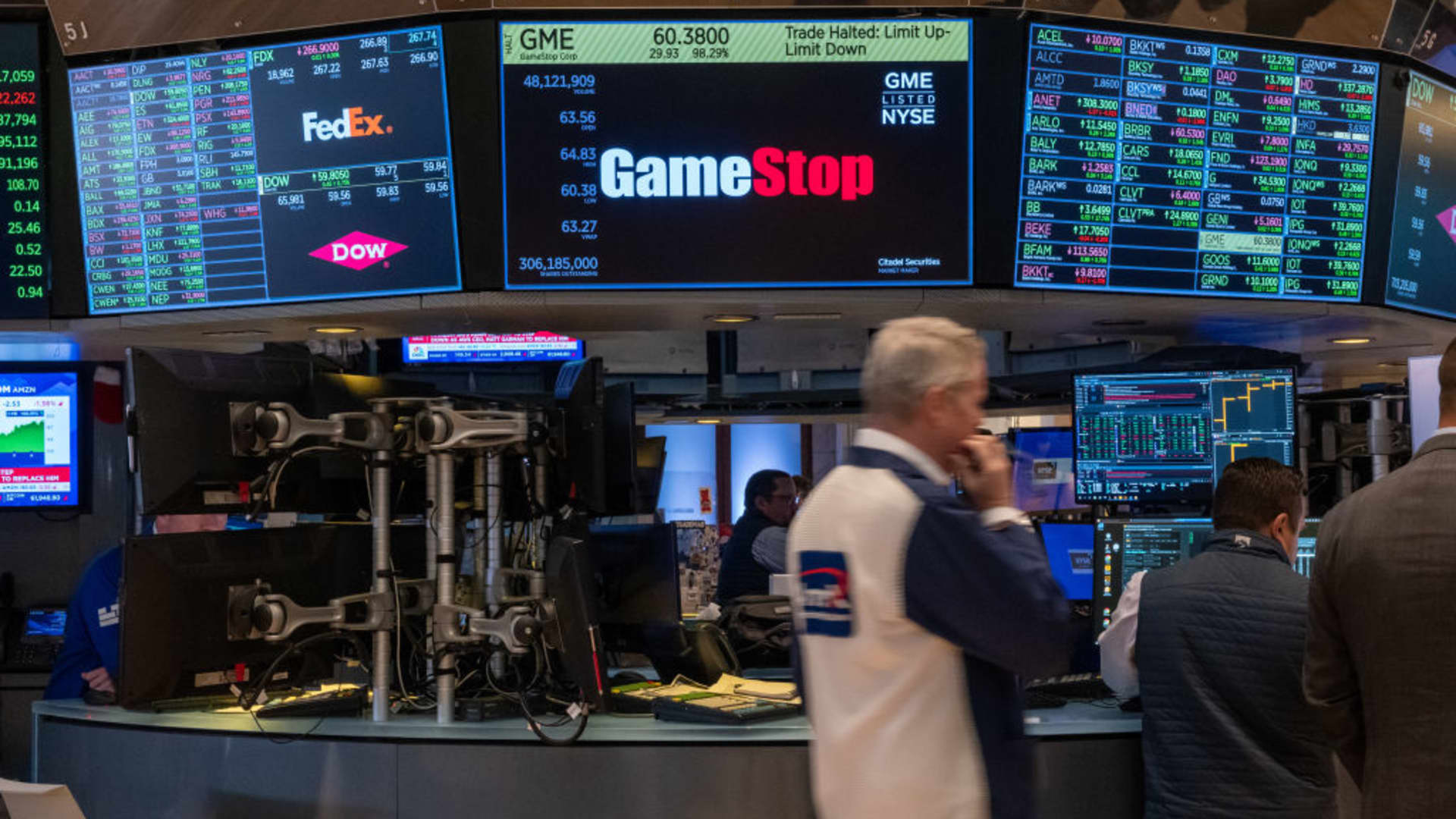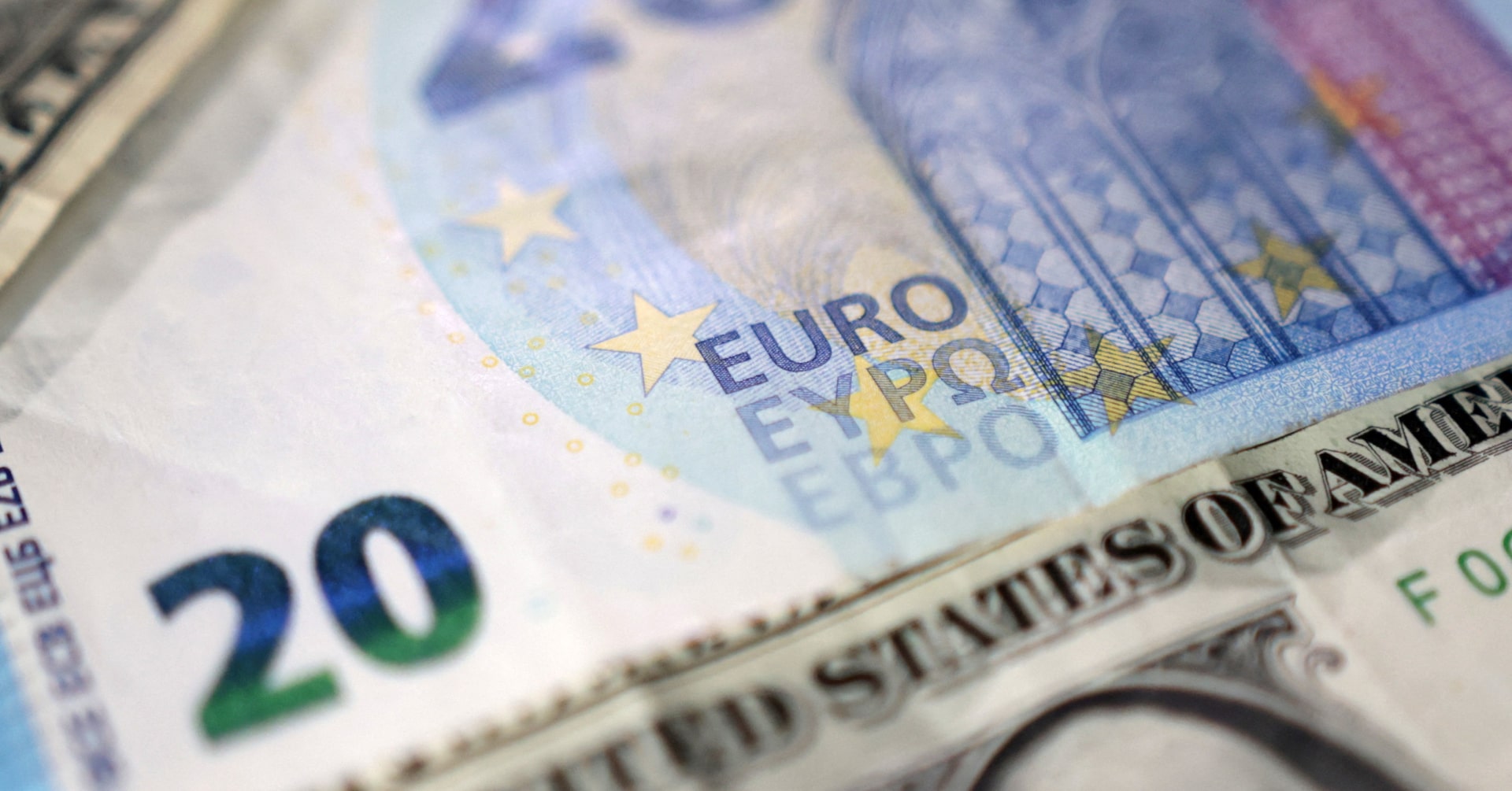Traders walk the floor during morning trading at the New York Stock Exchange (NYSE) on May 14, 2024 in New York City.
Spencer Platt | Getty Images
Retail investors haven’t traded stocks this much since another mania took over Wall Street three years ago.
Data compiled by JPMorgan shows that the share of small investors trading in U.S. stocks has reached 25%. That’s more than double the levels seen before the Covid-19 pandemic and close to the record seen at the beginning of 2021 — when the meme stock craze sent GameStop shares on a historic run before a massive crash.
This time around, investors have been piling into stocks since before the U.S. presidential election, in part thanks to expectations of an easier regulatory environment and lower for companies under President Donald Trump. This is also comes as the cohort continues to scoop up shares seemingly after every pullback.
“That buy the dip mentality, it’s never been higher at the retail level … it’s just the widespread exuberance in the market,” Adam Turnquist, chief technical strategist at LPL Financial, told CNBC. “It’s kind of a Pavlovian response. They’ve bought the dip for two, three years plus and it’s paid off, so they feel very confident about their stock-picking ability and trading this bull market.”
Instances of that strong buy-the-dip mentality have already been seen this year.
The S&P 500 dropped more than 1% on Jan. 27 after the emergence of Chinese artificial intelligence start-up DeepSeek raised concern of an AI bubble bursting in the U.S. However, the broad market index soon clawed back that decline and hit an all-time high on Tuesday.
The benchmark also sold off as much as 1.9% on Feb. 3 after Trump announced tariffs on Canadian and Mexican imports before recovering to end the day down just 0.8% after news that those levies would be halted for 30 days.
This trading action draws parallels to the moves seen in GameStop during the 2021 craze. Retail traders, organized primarily through a Reddit chat forum, drove a short squeeze on the stock that sent it 1,500% higher over a two-week period before falling sharply.
“There’s a lot of money in retail and when they’re that bullish, they’re supportive of the broader market,” Turnquist said. Similarly, JPMorgan’s Nikolaos Panigirtzoglou noted “the large role that retail investors played in propagating” the U.S. equity market during the second half of 2024.
To be sure, Oppenheimer’s trading desk pointed out last week that equity investors have generally become more risk averse this month amid growing political, macroeconomic and policy uncertainties. However, retail investor favorites such as Palantir, AMC Entertainment and BlackBerry continue to soar in February:
- Palantir: up more than 50.5%
- AMC: up more than 13.5%
- BlackBerry: up about 34%
Palantir stock performance.
Signs of froth have been emerging, however, and stock pickers are being forced to navigate a market that has a wide gap between expensive stocks and companies trading at reasonable valuations.
Turnquist warned that retail traders may not see their wallets rise as easily as they have in the last couple of years.
“There’ll be a day of reckoning, I think, where they just keep buying the dip and we enter a bear market at some point and they’ll lose a lot of money,” Turnquist said, adding that trading has been “a lot easier to do when you have a bull market that goes up a record high every four days.”


